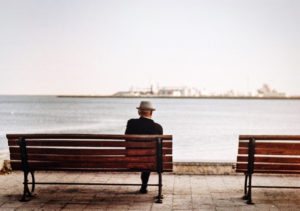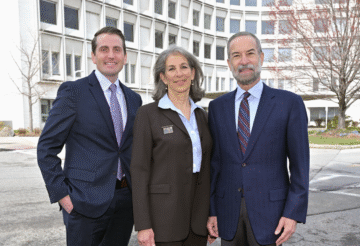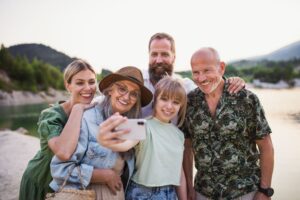
As I write this, we are in the throes of the COVID-19 crisis and people are staying in as much as possible. Businesses are taking unplanned vacations, meaning lost income, and restaurants are available only for takeout. I was supposed to be on vacation right now, but obviously air travel, especially international travel, has ground to a halt. I have been seeing patients, either in person or on the phone as needed or requested, while some have decided to skip a week or two of sessions to settle in, deal with childcare and work issues, or attend to elderly or sick relatives. Those I have seen have had the virus on their minds, or more specifically, the upheaval it has caused. I’ve been coming home stressed and drained over the constant narrative all day of how all our lives are up in the air and how people are hoarding toilet paper and pasta so there are none on store shelves for the rest of us.
I have ideas as to why this crisis has caused such stress and anxiety, even though other illnesses such as the flu often affects and kills more people, and other public health issues such as veteran suicide, child abuse, and drug overdoses barely register on society’s radar, even though, they too, affect tremendous amounts of people. Without making political statements one way or the other, the facts and timeline speak to a dispute early on as to how serious COVID-19 is, what our risk was as Americans, and what to do to prevent what we saw happening in China and then in Europe. We went from “Don’t worry, it’s nothing” to “National Emergency!!!” in about 12 hours, and this caused mass hysteria and panic among our populace. Like children who fear that their parents are not in control, we turned into anxious masses trying to take some control where we could. In addition, various organizations, local governments, school districts, and businesses were making their own decisions causing the appearance of either being overreactive or being onto some information the rest of us didn’t know. The only response to such uncertainty is panic.
All week I have been comparing this to the handling of 9/11, a day that was undoubtedly one of the most traumatic and chaotic of most of our lifetimes. But leadership was clear, experts were paraded in and out of press conferences to convey information in reassuring ways, new information was presented in a timely manner, and the message stayed fairly the same. We felt directed even though we were all terrified of what was to come. There was also no social media to give mixed messages or fan the flames. There was less a sense of chaos than there is now because things seemed unified. When one school district makes one decision and the one next door does something else, and then the governor makes some other demands and suggestions, but the neighboring state two miles away does something else, it makes for mass hysteria and chaos. And that’s where we’ve been.
If you feel you need additional help, reach out to BetterHelp.
My advice to everyone is to retain a sense of normalcy as much as possible. Here’s how:
- Keep with your routine as much as possible. If you’re working from home, try to keep to a schedule and set boundaries between work “stuff” and home “stuff” if you can.
- If you have children at home, likewise, try to set routines and structure. Children need structure, especially now.
- Turn off the constant stream of information, whether from news or social media. No one does well when being bombarded with information about a deadly virus all day. Check in a few times a day, maximum, and check legitimate sources.
- Get outside. Even if we have to engage in social distancing, we can still go out to parks and other open-air spaces where we have the ability to be out of our homes but not come into close contact with others. Parks are especially empty on weekday mornings.
- Take control in a way that works for you. Some people are self-isolating, but that’s not the healthiest for people who tend towards depression or feel isolated already. Don’t be capricious about yours or others health, but if you feel the need to get out and engage with the world, take precautions, but ease your mental health as you need to. Walk your dog. Chat with a neighbor.
- I have concerns about the length this will go on and the feelings of anxiety and isolation that may persist. Reach out for help if needed, even virtually. We all feel out of control right now, unable to even make plans to visit a dentist or get a haircut. Turning the world on its axis like that can be disorienting and frightening.
Barbara Kapetanakes, PsyD. practices psychotherapy in Sleepy Hollow.






